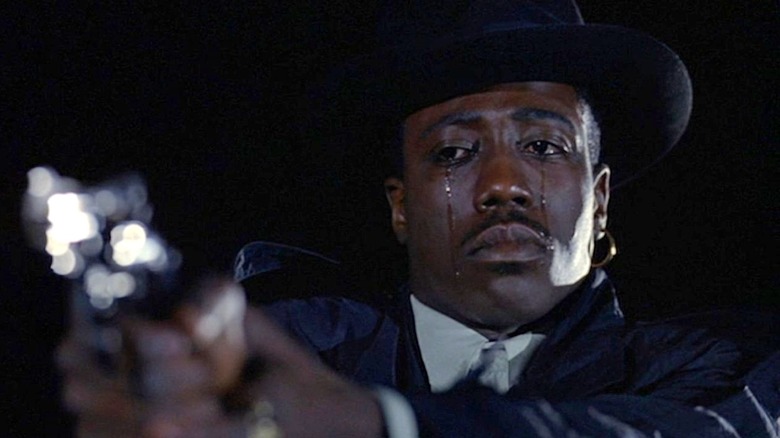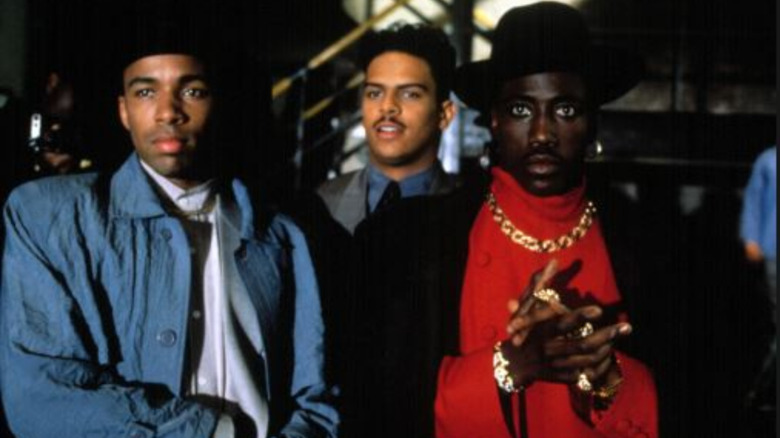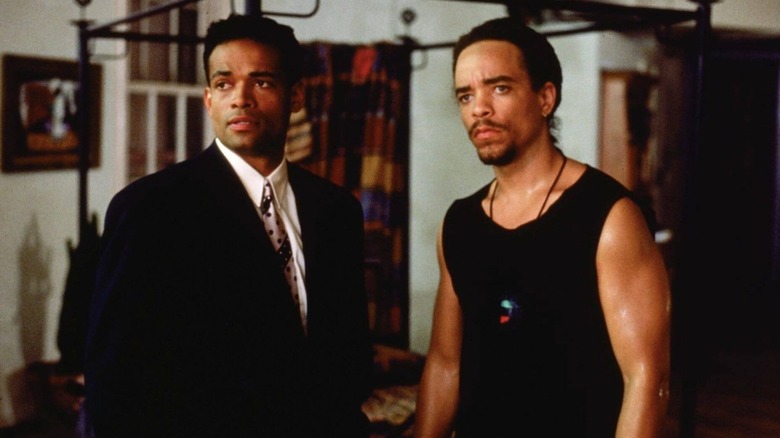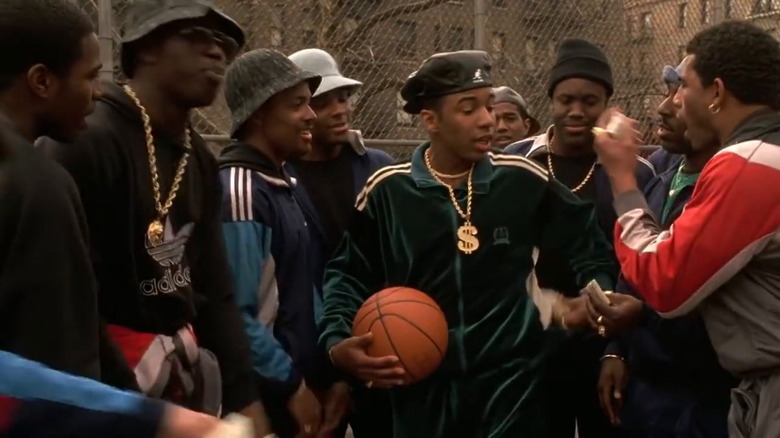Why Wesley Snipes Walked Away From The New Jack City Sequel
In fall 2021, "New Jack City" screenwriter Barry Michael Cooper announced in a tweet that he was working on a prequel to the 1991 neo-gangster flick. The tweet came two years after Deadline reported that Warner Bros. had tapped filmmaker and "Power Book III: Raising Kanan" actor Malcolm M. Mays to pen a reboot to the film. No matter who writes the eventual script for the "New Jack City" follow-up, it appears the project will be made without the services of the original's leading star, Wesley Snipes.
Set in 1986 Harlem, "New Jack City" follows undercover detective Scotty Appleton (Ice-T) as he plots to take down Nino Brown (Wesley Snipes), a flamboyant, cold-blooded drug lord. The film was directed by Mario Van Peebles, who also stars in it alongside Chris Rock, Allen Payne, and Judd Nelson. "New Jack City" has since become a cult classic. So why wouldn't Snipes, who said he turned down numerous offers to be involved with a sequel, want to reprise his role as Nino Brown? In a 2019 interview with Shadow and Act, he explained:
"I think some things should be left alone ... if it worked at the time under the circumstances. And the story was built around things that are current. I don't particularly like the idea of recreating the drug culture. For what?"
New Jack City's attempt to be more than just a gangsta flick
Wesley Snipes' comments refer to the fact that the plot of "New Jack City” unfolds while President Ronald Reagan's war on drugs is in full swing. Naturally, the film sprinkles in social commentary through its dialogue and news reports on the crack epidemic that plagued predominantly Black neighborhoods in the U.S., contributing to rising crime rates, unemployment, and income inequality. But they are just that: sprinkles. "New Jack City" fumbled the opportunity to take a deep dive into these issues.
The social turmoil merely serves as a backdrop to the film, neither strengthening its plot nor rounding out its characters. Detective Scotty Appleton's motive for taking down Nino Brown, for example, is simply old-fashioned revenge: Nino Brown killed his mother. And sure, Nino Brown delivers a diatribe at the end about how he came from the have-nots, but for most of the movie we see him relishing in the glamor and fame he gained through his criminal enterprise. Obviously, the film's attempts at achieving social relevancy weren't potent enough to stop Snipes from dismissing a possible sequel as simply "recreating drug culture."
Wait ... didn't Nino Brown die anyway?
At the end of "New Jack City," Detective Scotty Appleton catches Nino Brown, but the kingpin accepts a very generous plea deal that would make him eligible for parole after just a year in prison. Perhaps this is another passive commentary on a broken criminal justice system that allows cold-blooded individuals like Nino Brown to fall through the cracks. Before Brown can celebrate the victory, however, a neighborhood vigilante enters the courthouse and shoots him in the chest. He topples over a stories-high staircase and splat! The movie ends on Nino Brown's apparent lifeless body.
It would be hard to justify bringing back a character whom viewers watched catch a slug to the heart and fall to his death (Nino Brown isn't Michael Myers). And even if movie magic does resurrect the iconic drug lord, it would be far from believable to see him still running his criminal enterprise more than 30 years later. Many of the real-life Nino Browns from the '80s have either turned their lives around or succumbed to the drug game in one fashion or another.
A second New Jack City could work without Wesley Snipes
Even though Snipes doesn't think a "New Jack City" sequel would be relevant today, as the crack epidemic has waned since the early 2000s, the social conditions that often help create the Nino Browns of the world — such as unemployment, social inequality, and systemic racism — are still very prevalent today.
But the best bet for another "New Jack City" movie would be Barry Michael Cooper's prequel option. This would allow the film to make up for the opportunity missed in the original and take a deeper dive into social issues, and better flesh out how they shaped Nino Brown into the man he became. Luckily, it appears that this is the route Cooper is going in; according to his tweet, the script he's working on is aptly titled "The Diary of Nino Brown: The Monster Reagan Created."
This film could show Snipes that it is not merely a recreation of drug culture, but rather an exposé of American politics and society at large, much like "Snowfall." This, in turn, could lure Snipes back in for a possible third installment ... The writers then will just have to figure out a way to bring Nino Brown back to life.



